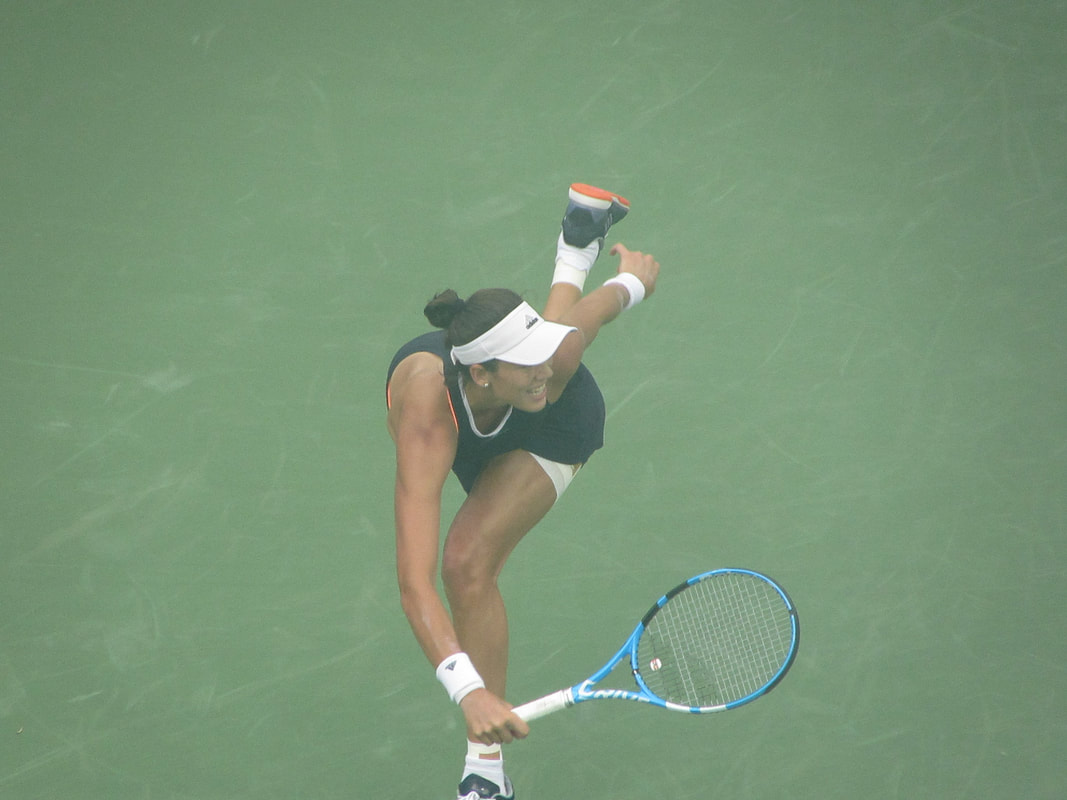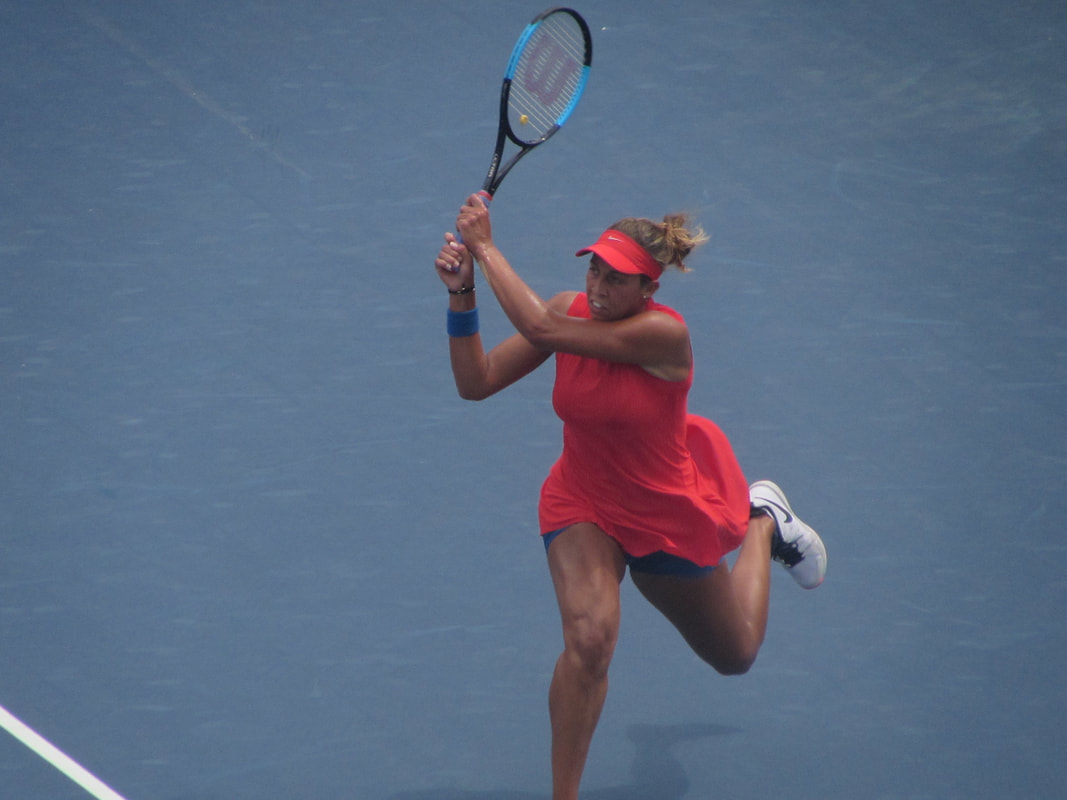|
By James Rogers Photo credits: Jonathan Newman It wasn’t always pretty, but Garbiñe Muguruza powered through Madison Keys’ sustained aggression, a 2-hour rain delay, and three match points against her to win a third-set tiebreaker against the in-form American. The Spaniard survived a tough test in Cincinnati on Thursday afternoon, handling unpredictable conditions and an opponent whom she had never beaten. Keys had won their previous three meetings: here in 2012, in Rome on her way to the final in 2016, and in Stanford just two weeks ago. Keys got off to a fast start, punctuated by a dazzling down the line forehand to secure the early break and 2-0 lead. Muguruza, unnerved, broke right back in the next game, the trade of early breaks setting the tone for the rest of the match. The serving struggles were in no small part due to the wind -- a portent of the wild thunderstorm to come -- which wreaked havoc on both players from the onset. But, it was Keys’ ball toss that seemed to be the most affected. Still, Keys inched ahead on serve to 4-3, before Muguruza left the court for treatment on a lower back problem. When she returned, her thigh taped, the Spaniard took control of the first set and sped to the finish line: she held serve, broke Keys, and served it out with little fanfare. In their previous three meetings, the loser of the first set went on to lose the match; would this match prove different? After six straight service holds to start the second set, Keys broke to go up 5-3. Serving for the set, the American handled a tough shoelace volley, and launched a deft lob to reach set point. She then bagged the set with a trademark wide serve and inside-out forehand combination, one that she used effectively throughout the match. With the match in the balance at 2-2 in the third set, the Mason skies produced an almighty storm, delaying the proceedings for two hours. When the thunder and lightning abated, Keys sprinted away with a 4-2 lead in the decider; but, in what was the story of this third set, her untimely errors squandered the multiple leads and chances she held. Still, Keys kept coming, breaking again with a barrage of winners to serve for the match at 6-5. With the match on her racquet and a 40-15 lead, Keys failed to convert three match points, undone mostly by the unpredictability of her backhand. While Keys was erratic in the key moments, Muguruza remained steadfast, returning with extreme aggression and drawing costly mistakes from Keys. Muguruza credited her experience in getting her through tough moments: “I knew that no matter what, I’m there and I have my options as well . . . sooner or later I’m going to have a chance.” That chance came in the third-set tiebreaker. The Spaniard’s sustained aggression finally wore down Keys. After failing to serve out the match and squandering three match points, Keys doubled down with error after error in the tiebreak, thanks in no small part to Muguruza’s brilliant stretch of hitting from the backcourt. A final backhand error sealed the win for Muguruza after 2 hours and 18 minutes. Keys remarked afterward: “I obviously had some unforced errors that I wasn’t happy about, but I felt like I had to go for it.” Each woman punished second serves, winning over 60 percent of her opponent’s second serve points. Most long rallies were decided by massive winners or ‘good’ errors. But, it was Keys’ numerous backhand errors which allowed Muguruza into the match at key moments. On the surface, the story of the match was aggression. Both Muguruza and Keys, two of the premier power players of the current women’s game, consistently punished short balls and looked to end points with screaming winners. Fans might remember that Keys forced Serena Williams onto her heels with her stunning power game at the 2015 Australian Open. Muguruza, for her part, silenced the Centre Court crowd with a devastating attack against Venus Williams in last month’s Wimbledon final. Power tennis certainly dominated the day, but the most important factor was Muguruza’s fortitude: she withstood heat, humidity, rain, a two-hour delay, Keys’ relentless aggression and, as she revealed in her post-match press conference, the news of the Barcelona terrorist attack, which she learned about during the rain delay. Although the match was close, Muguruza was the player more capable of shutting out her environment today, and that made the difference.
0 Comments
Leave a Reply. |
ARCHIVES
September 2022
|



 RSS Feed
RSS Feed